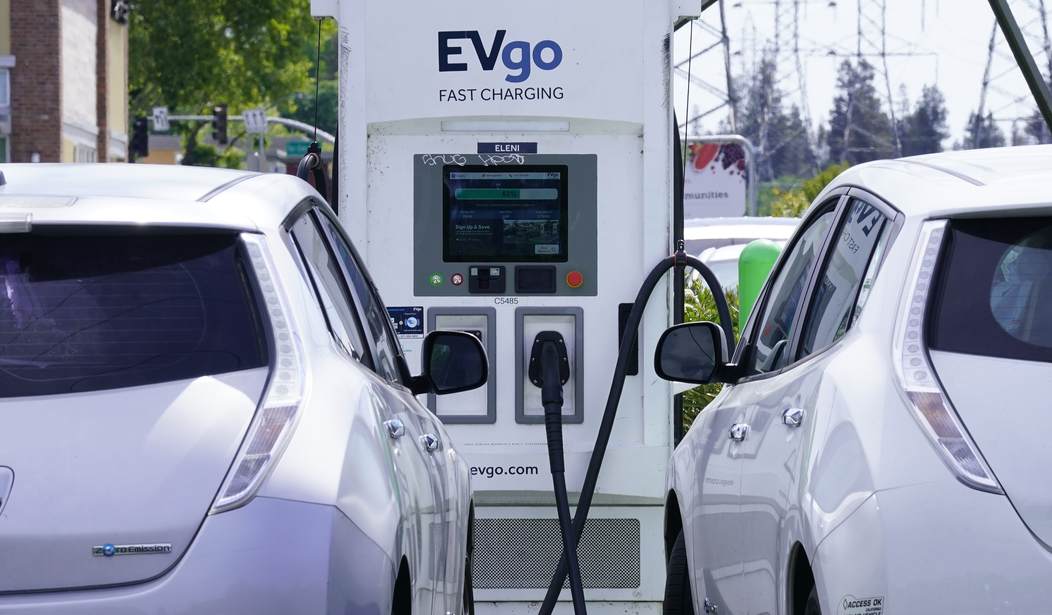The European Union jumped on the electric vehicle craze well ahead of other parts of the world, particularly after the Paris climate accord. But in typical socialist fashion, they weren’t content with simply encouraging people to switch to EVs. Many European countries almost immediately started making plans to ban gas-powered cars and trucks and make EVs mandatory. Lots of Europeans wanted to get out ahead of the curve and began snapping the newer models up. But then came the start of the war in Ukraine, cutting energy supplies just as Europe was trying to wean itself off of fossil fuels. Now, in a rather embarrassing reversal, Switzerland is considering legislation that would ban people from driving electric vehicles except in urgent conditions over the winter because there simply might not be enough juice on the grid to recharge them. (From Der Spiegel. Original is in German but Google Translate can convert it for you.)
Switzerland could be the first country to impose driving bans on e-cars in an emergency to ensure energy security. Several media report this unanimously and refer to a draft regulation on restrictions and bans on the use of electrical energy. Specifically, the paper says: “The private use of electric cars is only permitted for absolutely necessary journeys (e.g. professional practice, shopping, visiting the doctor, attending religious events, attending court appointments).” A stricter speed limit is also planned highways.
Most of the electricity in Switzerland comes from hydropower. However, the country also imports electricity from Germany and France . If there are bottlenecks there, electricity could also become scarce in Switzerland. Energy security in Europe is considered endangered because of the Russian war of aggression against Ukraine .
Switzerland has various “escalation levels” for its energy crisis. The ban on recharging electric vehicles would only go into effect when they reach level 3 according to the draft copy of the legislation that reporters obtained. Prior to that, the government would impose limits on how hot the water can be in washing machines (yes… seriously) and they would ban the use of leaf blowers and seat heaters in chair lifts. Bizarrely, they will also limit videos from streaming services to only be shown in SD resolution. (Huh?)
So much the same as we saw in California earlier this year, the government pushed everyone to switch over to electric vehicles to save the planet. But now they’re warning them that they won’t be able to recharge their vehicles except for “urgent travel requirements.” The crazy part of all of this is that the major energy corporations have been warning everyone about this for several years. The power grid doesn’t produce endless electricity by magic. You have to produce enough energy to power it or it fails. But nobody wanted to listen.
To put this story in context, consider the fact that in June of this year, the EU proposed a ban on new gas-powered cars by 2035
From 2035, newly registered cars and light goods vehicles will no longer be allowed to emit greenhouse gases. The decision was approved on June 29 by the 27-member group. The ban on internal combustion engines voted by the European Parliament – which the EU member States still have to approve – effectively marks the end of petrol- and diesel-powered vehicles, as well as hybrids, which are currently experiencing a boom. In future, only new electric or hydrogen-powered models will be able to be sold.
2035 is only a little more than a decade away. If this proposal passes, Europe won’t even allow hybrids to be sold. Only fully electric vehicles or hydrogen-powered ones. Good luck finding a hydrogen recharging station, by the way. And unless they get their energy grid back under control, there’s no guarantee you’ll be able to drive your car anywhere.
I was under the impression that Europe was a collection of first-world countries. Perhaps I was mistaken.








Join the conversation as a VIP Member